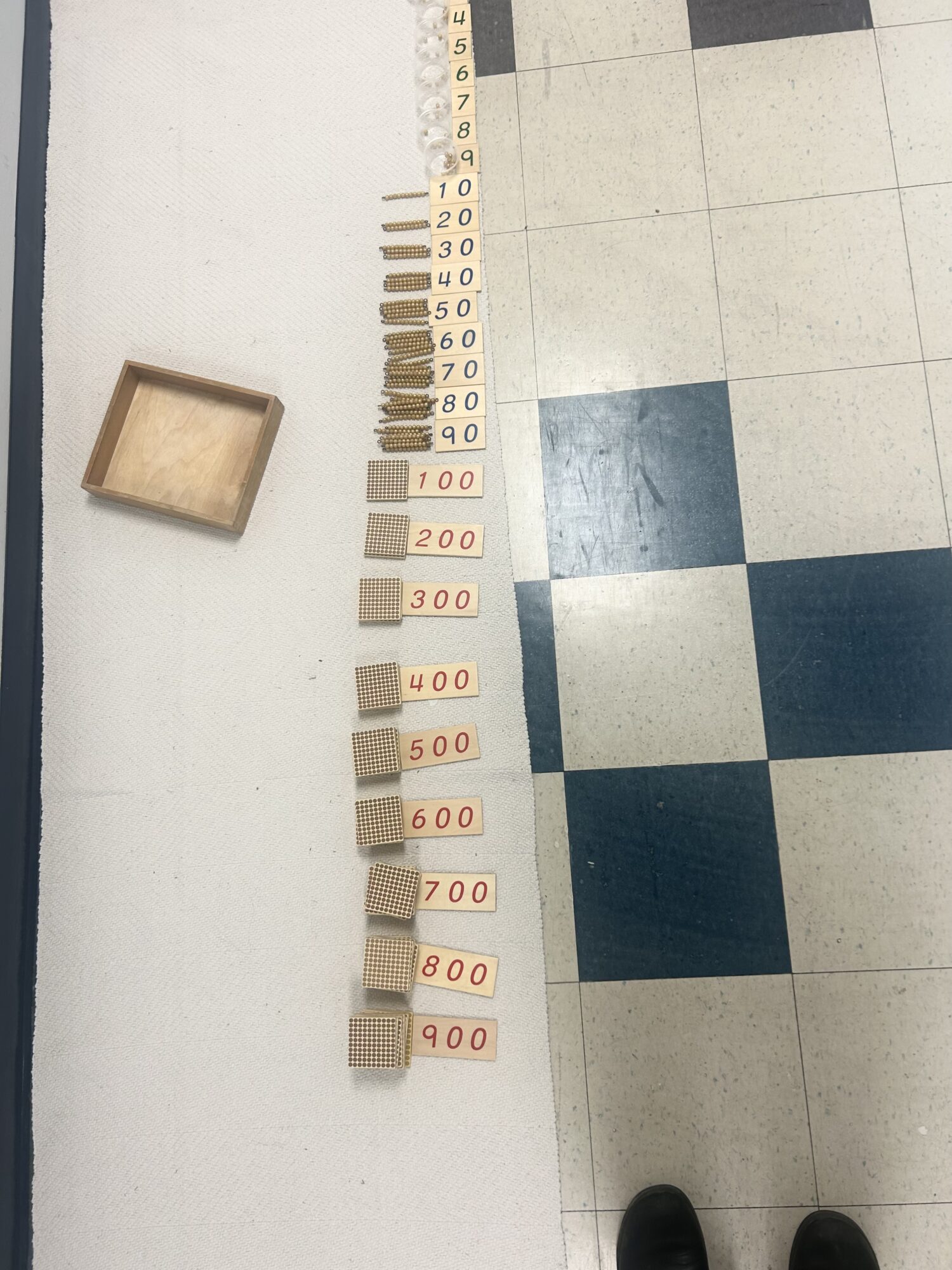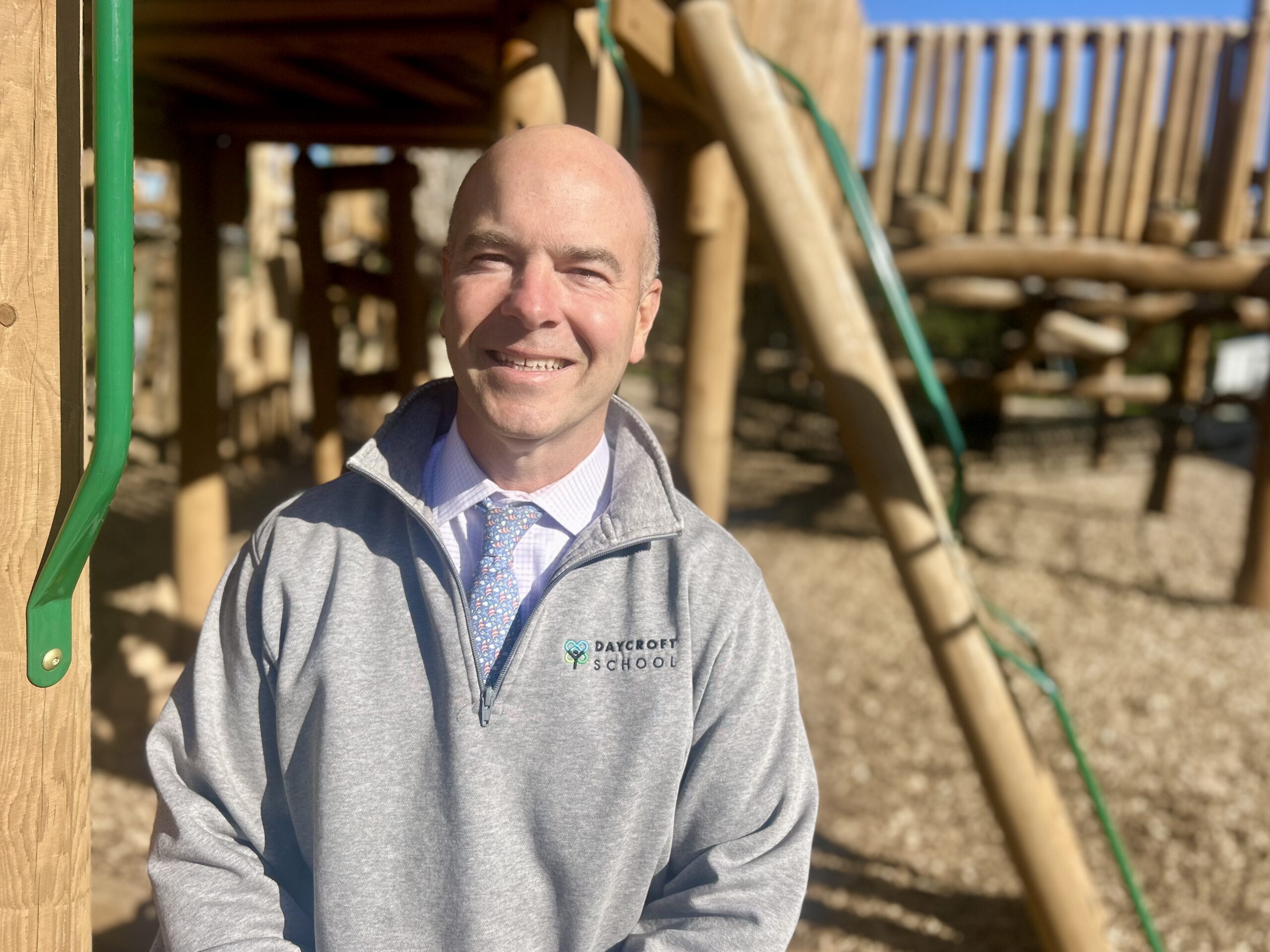When you step into Daycroft Montessori School in Ann Arbor, the first thing you notice is what you don’t hear: chaos.
Instead, in classrooms filled with toddlers and young children, there’s a calm hum of focus. Three-year-olds polishing silver cups. Five-year-olds laying out intricate math puzzles. First graders deep into geometry. And teachers? They’re not standing at the front of the room issuing instructions—they’re kneeling beside students, quietly guiding, observing, letting curiosity take the lead.
That’s the magic of Montessori—and it’s catching on.
Daycroft, a private Montessori school serving children from 18 months through sixth grade, is seeing growing demand from families across Washtenaw County and beyond. As of this year, the school is at full capacity in its early childhood and elementary programs and is actively planning a major expansion: a new middle school program based in downtown Ann Arbor, set to launch in 2027.
At the heart of this growth is a philosophy that’s equal parts rigorous and revolutionary.
“It’s honoring the child and their interests versus the interests of the teacher,” said Head of School David Lee. “It builds confidence and independence. It’s the way adults learn—and it’s the way kids should be learning.”
Lee, a former investment banker who pivoted to education after two decades in San Francisco, moved to Michigan with his wife and two young children. What started as a family decision has blossomed into a passionate advocacy for Montessori education.
“I wasn’t Montessori before I came here,” he admitted with a smile. “But now? I’ve totally drank the Kool-Aid.”
Real Work, Real Growth
Montessori classrooms are rooted in hands-on learning, independence, and mixed-age classrooms. But what stands out at Daycroft is the respect shown to even the youngest students—and the way they rise to meet it.
“We had a toddler grinding coffee beans, putting it into a K-cup, and then delivering it to a teacher,” Lee said. “There’s such pride in doing real work. Washing windows, tying shoes, zipping coats—it all builds independence.”
That independence leads to deeper learning, especially when it comes to core subjects. Lee, a former math teacher, beams as he points to a layout of beads crafted by a kindergartner, a visual display that teaches place value up to the thousands. Down the hall, first graders are learning multiplication and exponentiation using colorful Montessori materials.

“Math in Montessori is concrete before it’s abstract,” Lee explained. “They’re doing real, meaningful work. And it sticks.”
Grit, Focus, and Kindness
At Daycroft, failure isn’t feared—it’s embraced.
“Montessori is about letting kids struggle, letting them fail in small ways,” Lee said. “Instead of correcting them, we give them tools to self-correct. That’s where the real learning happens.”
The result is a school filled with students who are calm, focused, and genuinely joyful in their work.
“It’s like Santa’s workshop,” I remarked on our tour. “They’re all just happily working away.”
And they are. Students move about the classrooms with purpose, engaging in small group lessons, independent research, or peer mentoring. There’s no shouting. No frantic energy. Just quiet confidence.
“When kids are given the right environment—structured, calm, and filled with meaningful work—they thrive,” said Lee. “They want to learn. They run into school in the morning and are sad to leave in the afternoon.”
Possiblle Plans for Bigger Kids
With strong retention from toddlers through elementary school, Daycroft is now exploring the opportunity to meet the next challenge: adolescence.
“Seventh and eighth graders are ready for real responsibility,” Lee said. “we envision a program where students can engage with real businesses and nonprofits, do authentic work, and grow into young adults.”
Rather than learn about Washington, D.C. in a classroom, middle schoolers would plan their own trip there—budgeting, organizing travel, and serving as docents for historical landmarks they’ve researched.
“That’s Montessori,” Lee said. “You’re not just teaching facts. You’re building capable, compassionate, curious people.”
A Model That Works
Globally, the Montessori model continues to grow in popularity, and studies increasingly support its approach. Whether it’s minimizing the noise that disrupts learning, or the value of looping with the same teacher across multiple years, the research confirms what Daycroft families already see every day.
“This works for every child,” Lee emphasized. “Every personality, every learning style. Because instead of forcing a kid to fit the system, we shape the system to fit the child.”
With waitlists growing and momentum building, Daycroft may no longer be Ann Arbor’s best-kept secret—but it remains one of its most joyful.
“I think every parent wants to know their child is happy and thriving,” Lee said. “Here, they are. And it’s beautiful to see.”
Daycroft Montessori School is located on a peaceful 10-acre campus in Ann Arbor. To learn more or schedule a tour, visit www.daycroft.org.





 8123 Main St Suite 200 Dexter, MI 48130
8123 Main St Suite 200 Dexter, MI 48130


